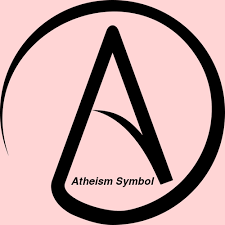Atheism seems to have evolved over the years. Ironically, the first atheists were those who rejected the Greek and Roman pantheon of gods for the monotheistic Judeo-Christian God. Thus, its first use was not in the context of being a non-theist, but a non-polytheist. Later, about the time of the Reformation, atheism was birthed out of a reaction to the injustices of the Church. From this reaction, philosophical atheism was developed largely by Nietzsche and other prominent atheists of his day.
The Absence of God
Only then did, atheism takes on the meaning of the absence of God. Today, however, we have what is often labeled “new atheism” which is different from Nietzsche’s version of atheism largely because of the acceptance of objective morality apart from a philosophical grounding of that system in God. Thus, new atheism does not embrace the nihilism of Nietzsche.
While atheists will cringe at this assertion, new atheism is very much a religion of sorts. I have never met an atheist who would agree to this proposition. However, there is a rise of atheist communities, many of them virtual communities, but communities nonetheless. Many of these new atheists have spent time in Christianity, and give themselves the label of ex-Christians. Maybe that is why they still long for community and belonging to a group of like-minded individuals because of their time in the church. At the same time, I believe it is an innate need for humanity to form a community. Regardless of why they form communities, it is apparent that they do.
 According to dictionary.com, one of the defining factors of religion is “a body of persons adhering to a particular set of beliefs and practices.” Of course, atheists everywhere deny they have beliefs about anything, but rather non-beliefs and as such are excluded from being denoted as a religion. On the other hand, atheists claim that a “belief” is faith in anything unprovable which is why they claim that theists have “belief” in God, but cannot know God exists. What is good for the goose is good for the gander. If belief is defined as such then the atheists, being one who cannot prove a negative, namely God’s non-existence, is exerting belief by their definition and are thus a group adhering to a particular set of beliefs. One belief leads to another. If there is no god, a series of beliefs follow that presuppositional claim. Therefore, atheists do indeed believe in a particular set of beliefs. Granted, those vary between them and are not all identical, but that is the way of every group considered a religion.
According to dictionary.com, one of the defining factors of religion is “a body of persons adhering to a particular set of beliefs and practices.” Of course, atheists everywhere deny they have beliefs about anything, but rather non-beliefs and as such are excluded from being denoted as a religion. On the other hand, atheists claim that a “belief” is faith in anything unprovable which is why they claim that theists have “belief” in God, but cannot know God exists. What is good for the goose is good for the gander. If belief is defined as such then the atheists, being one who cannot prove a negative, namely God’s non-existence, is exerting belief by their definition and are thus a group adhering to a particular set of beliefs. One belief leads to another. If there is no god, a series of beliefs follow that presuppositional claim. Therefore, atheists do indeed believe in a particular set of beliefs. Granted, those vary between them and are not all identical, but that is the way of every group considered a religion.
Atheism books are often found in the religion section of book stores.
Within those growing shelves of books, one can find books such as “The Atheists Manifesto” or “The Atheists Bible.” Such books written by prominent atheists seem antithetical to their claim of not being a religion. Notwithstanding, seeing atheism as a religion doesn’t really detract from whether or not its philosophy is correct. Yet to atheists, religion is a negative thing and they do not want any association with the term. They are opposed to all it stands for and cannot be included in that which they despise. I have met atheists who are not so steadfast against religion per se, but only the injustices of religion. There are those who are tolerant of co-existing with religion provided it not be harmful to anyone, and there are those who want it eradicated and thus cannot conceive of their own atheism as a religion.
In comparison, many Christians do not like to be seen as religious or as having religion.
There is a move in the Church away from being seen as an organization to be seen as a living organism that is free from the bondage of religion for religion is seen as antithetical to a relationship with God through Christ.
 We understand that Christianity fits the bill under the dictionary definition of religion. However, to many Christians, religion is something man constructed, and following Christ is something God produced. Like the atheists, such Christians are also opposed to injustices brought by religion including Christianity and harmful dogma that was produced out of a tradition of man versus the love and Word of God. Even some who follow the Word of God has more religion than Jesus. Jesus once told the Pharisees that they study the Scriptures as if eternal life was found in them, rather seeing them as that which points to Him who is life. In this context, Christians often see some atheists as more religiously minded than Christians who do not embrace religion. Christians believe that freedom from religion comes from God and not from a rejection of God.
We understand that Christianity fits the bill under the dictionary definition of religion. However, to many Christians, religion is something man constructed, and following Christ is something God produced. Like the atheists, such Christians are also opposed to injustices brought by religion including Christianity and harmful dogma that was produced out of a tradition of man versus the love and Word of God. Even some who follow the Word of God has more religion than Jesus. Jesus once told the Pharisees that they study the Scriptures as if eternal life was found in them, rather seeing them as that which points to Him who is life. In this context, Christians often see some atheists as more religiously minded than Christians who do not embrace religion. Christians believe that freedom from religion comes from God and not from a rejection of God.
Conclusion:
Atheism does fall into the category of religion, while at the same time there is an understanding for why they would be opposed to such a label. Conversely, there is no necessity to irritate them by applying the label to them. Similarly, Christians who also fall into the category of religion have reason to want to be disconnected from that label as they share the atheists’ rejection of man-made religion. To the atheists, this is absurd. However, maybe one day, we can come to see our similar values of freedom from bondage to any system of control. The atheists see the freedom coming from abandoning any belief in God and the Christian sees it coming from embracing the love of God which transforms us and frees us from all bondages.’






